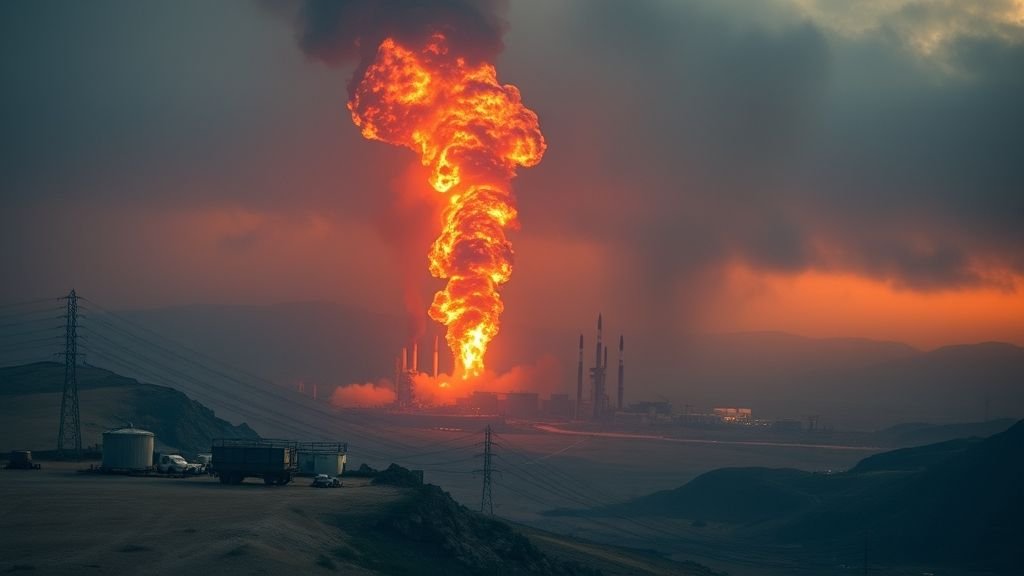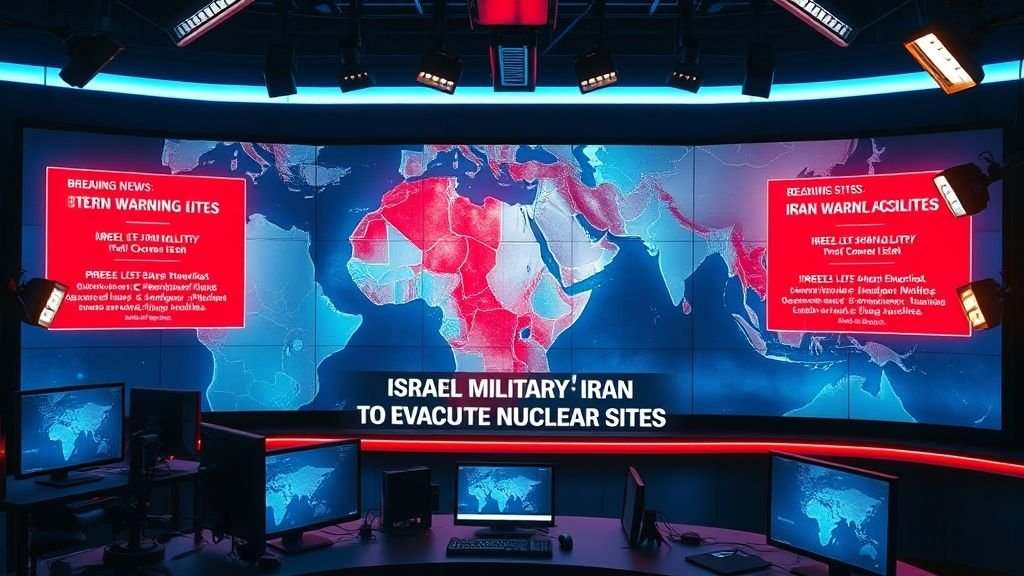Introduction
A tense situation is unfolding in the Middle East. Israel has issued a stark warning to Iran, urging the country to evacuate several key nuclear sites. This move signals a major escalation and raises fears of potential conflict. The warning could significantly affect regional stability and global security. Countries around the world are watching closely, as this development could shift diplomatic efforts and military plans.
The Context Behind the Warning: Iran’s Nuclear Ambitions and International Concerns
Historical Background of Iran’s Nuclear Program
Iran’s nuclear program has been a source of tension for decades. Back in the early 2000s, Iranian scientists began developing nuclear technology, claiming peaceful purposes. However, many countries suspected Iran sought nuclear weapons. Over the years, international bodies like the IAEA questioned Iran’s transparency, leading to sanctions and diplomatic pressure. These efforts aimed to limit Iran’s nuclear capabilities and prevent proliferation.
Recent Developments in Iran’s Nuclear Activities
Recently, Iran has made noticeable progress at its nuclear sites. Reports indicate advanced centrifuges are spinning faster, enriching uranium to higher levels. The IAEA has raised alarms over undisclosed nuclear activity and stockpiles. Some discoveries suggest Iran might be trying to build a bomb, complicating global efforts to curb its ambitions. These developments push diplomatic talks into uncertain territory.
Global and Regional Security Concerns
Experts warn Iran’s nuclear progress could spark a regional arms race. Neighboring countries like Saudi Arabia and Israel see Iran’s weapon potential as a direct threat. If Iran succeeds in developing nuclear capabilities, it could destabilize the entire Middle East. This situation puts regional allies on high alert, forcing them to consider military or defensive strategies.
Details of the Israeli Military Warning
The Content of the Warning to Iran
Israel’s warning was explicit. It told Iran to immediately vacate key nuclear sites and halt all nuclear work. Specific deadlines were shared, giving Iran time to comply, but also warning of potential military action if ignored. The warning combines diplomatic pressure with intelligence signals suggesting readiness for action.
Rationale Behind the Warning
Israeli officials say the warning is based on recent intelligence showing Iran’s advancements. Their goal is to prevent nuclear proliferation before Iran crosses a point of no return. While diplomacy remains a priority, Israel is prepared for military intervention if necessary. The warning aims to forestall future conflict and ensure regional security.
Response from Iran
Iran has called the warning “baseless” and accused Israel of trying to sabotage diplomacy. The government insists its nuclear program is peaceful and within international laws. Some analysts believe Iran could increase nuclear activity or enhance missile defenses in response, heightening tensions further.
International Diplomatic Reactions and Implications

Responses from Global Powers
The United States expressed concern but also urged calm and diplomacy. European leaders called for renewed talks, while Russia and China urged restraint. These countries’ reactions influence Iran’s next moves and Israel’s strategy. The international community sees this as a test of diplomacy versus military muscle.
Impact on Nuclear Negotiations
Negotiations over the Iran nuclear deal, known as the JCPOA, are currently stalled. The warning complicates these talks, as Iran might feel more justified in resisting concessions. Diplomatic efforts could either intensify to avoid conflict or falter if mistrust deepens.
Risk of Escalation and Conflict
Experts warn that missteps could spark a larger conflict. With military options on the table, the risk of accidental escalation increases. A full-scale war would threaten Middle East stability and could draw in regional and global powers.
Military and Strategic Considerations
Israel’s Military Preparedness and Options
Israel’s military has options, from targeted airstrikes at nuclear installations to cyberattacks disabling Iranian facilities. Its technological edge is significant, giving Israel chances to preempt nuclear development. Military readiness suggests a potential strike could happen if diplomacy fails.
Iran’s Defensive Measures
Iran is bolstering its defenses. It’s increasing missile security, underground bunkers, and regional alliances with groups like Hezbollah. These steps aim to protect against potential Israeli strikes and keep their nuclear program alive.
The Role of International Allies
The U.S. continues to support Israel’s security, providing intelligence and military aid. Other allies are pushing for diplomacy but also preparing for possible conflict. International mediation might still be viable to de-escalate the crisis.
Actionable Insights for Stakeholders
For Policymakers and Diplomats
It’s crucial to keep diplomatic channels open. Talking directly can reduce misunderstandings. Clear verification measures are essential to prevent false alarms and miscalculations.
For the International Community
Global leaders should demand transparency from Iran and support nuclear treaties. Governments should help facilitate negotiations that keep Iran’s nuclear activities peaceful.
For the Public
Being informed about regional security issues is vital. Promoting peace through awareness and dialogue can help prevent conflict. Support diplomatic efforts for stability in the Middle East.
Conclusion
Israel’s warning to Iran about nuclear sites signals a turning point. It underscores the urgency of diplomatic solutions but also the risks of escalation. Both sides need to work towards dialogue and verification rather than conflict. Watchfulness, cooperation, and clear communication are key to avoiding a dangerous conflict in the Middle East. The world must stay alert and push for peace amid rising tensions.
